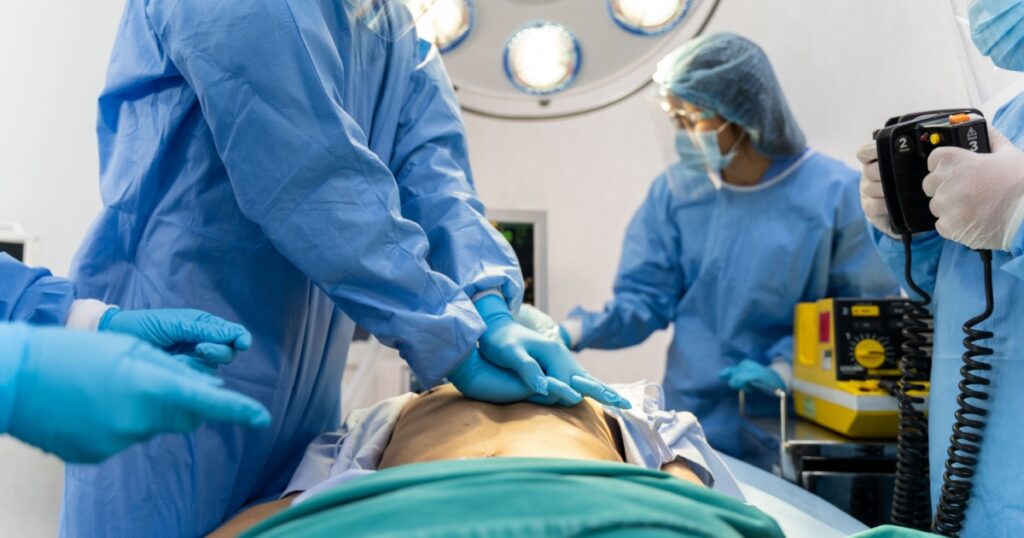Cardiac arrest is a life-threatening condition that occurs when the heart suddenly stops beating effectively, leading to a loss of blood flow to the brain and other vital organs. It is often considered a near-death experience, as the chances of survival are extremely slim. However, recent research conducted by NYU Grossman School of Medicine has shed light on the experiences of cardiac arrest survivors. In a groundbreaking study, patients who were revived through cardiopulmonary resuscitation (CPR) reported insightful and lucid memories of their time in cardiac arrest. These accounts provide a fascinating glimpse into a realm that was previously unknown and unexplored. In this article, we will delve deeper into the study, explore the 12 insightful stories shared by cardiac arrest survivors, and discuss the implications of these experiences.
Near Death Cardiac Arrest: The Study

The study, known as the AWAreness during REsuscitation (AWARE)-II study, involved a collaboration between NYU Grossman School of Medicine and 25 hospitals in the United States and United Kingdom. It followed 567 patients who experienced cardiac arrest during their hospital stays between May 2017 and March 2020. The researchers aimed to investigate the experiences of cardiac arrest survivors and analyze their memories and brain activity during the crucial moments of resuscitation. (1)
The researchers found that up to an hour after their hearts had stopped, some patients who had received CPR had clear memories of their experiences. These patients reported experiencing death while being seemingly unconscious. The study also revealed that nearly 40 percent of these survivors had brain activity associated with higher mental function, as detected by electroencephalogram (EEG) recordings. These findings challenge the commonly held belief that the brain suffers permanent damage approximately 10 minutes after the heart stops supplying oxygen.
“Although doctors have long thought that the brain suffers permanent damage about 10 minutes after the heart stops supplying it with oxygen, our work found that the brain can show signs of electrical recovery long into ongoing CPR,” said senior study author Sam Parnia, MD, PhD, an associate professor in the Department of Medicine at NYU Langone Health. “This is the first large study to show that these recollections and brain wave changes may be signs of universal, shared elements of so-called near-death experiences.” (2)
Read More: Stress Can Cause a Cardiac Event that Resembles a Heart Attack
12 Insights from Cardiac Arrest Survivors

While not every patient who did survive cardiac arrest had memories of their time near death, some of them did. Their insights are remarkable and challenge many of our beliefs about death and near-death experiences. These are the insights the researchers learned from patients who were able to recount what was happening in their mind before they were brought back to life.
1. Perception of Separation from the Body

Many survivors recalled a sense of detachment from their physical bodies during cardiac arrest. They reported observing their own resuscitation efforts from an external perspective.
2. Observing Events without Pain or Distress

While in a state of unconsciousness, survivors described being able to observe the events happening around them without experiencing any pain or distress. Some said they felt at peace, with a warm light around them.
3. Meaningful Evaluation of Actions and Relationships

Cardiac arrest survivors reported a deep introspection and evaluation of their actions and relationships. They gained a newfound understanding of their lives and the impact they had on others.
4. Lucid Recall of Early Childhood Memories

Some survivors shared vivid memories from early childhood that resurfaced during cardiac arrest. This suggests that the brain may retain and access memories from different stages of life during such experiences.
5. Evaluation of Morality

Cardiac arrest survivors described a unique perspective on morality during their near-death experiences. They reported reflecting on the consequences of their actions and the moral implications of their choices.
Read More: The Surprising Difference Between Heart Attack and Cardiac Arrest
6. A Sense of Timelessness

Many survivors mentioned a lack of perception of time during cardiac arrest. They experienced a sense of timelessness or a distortion of time, making them question the linear nature of time.
7. Prolonged Brain Activity

The study revealed that brain activity associated with higher mental function persisted even an hour into CPR. This contradicts the belief that the brain ceases to function effectively shortly after the heart stops.
8. Differentiating Experiences from Hallucinations

Survivors emphasized that their experiences during cardiac arrest were distinct from hallucinations, dreams, or delusions. They perceived their experiences as vivid and real.
9. Increased Awareness and Heightened Senses

Some survivors reported heightened awareness and enhanced sensory perception during cardiac arrest. They felt more attuned to their surroundings and the people present during their resuscitation.
Read More: 18-year-old dies after suffering cardiac arrest in bathroom after gym class, parents say
10. Enhanced Understanding of Life’s Purpose

Survivors described gaining a clearer understanding of the purpose and meaning of their lives. They felt a renewed sense of purpose and a stronger drive to make the most of their time.
11. Integration of Spiritual Elements

Some survivors mentioned spiritual elements in their experiences, such as encounters with deceased loved ones or celestial beings. These encounters provided comfort and reassurance during their near-death journey.
12. Sharing and Communication Difficulties

Many survivors expressed difficulty in articulating their experiences and finding words to describe the profound insights they gained during cardiac arrest. They recognized the limitations of language in capturing the depth of their experiences.
New Perspectives and Possibilities

The study conducted by NYU Grossman School of Medicine has opened up new possibilities in our understanding of cardiac arrest and the experiences of survivors. The 12 insightful stories shared by cardiac arrest survivors provide unique and profound insights into a realm rarely explored. These accounts challenge our preconceived notions about consciousness and the boundaries of the human mind.
The findings from this study may have significant implications for the field of medicine. Understanding the experiences of cardiac arrest survivors can help guide new approaches to CPR, restart the heart, and prevent brain injuries. Additionally, the study invites further exploration into the nature of near-death experiences and the potential existence of an afterlife.
More Research Required

While the study has provided valuable insights, it also emphasizes the need for further research and investigation. The reality and meaning of these experiences remain unproven, and future studies should focus on defining biomarkers of clinical consciousness and examining the long-term psychological effects of resuscitation after cardiac arrest.
The stories shared by cardiac arrest survivors have the potential to change our perspectives on life, death, and the nature of human consciousness. As we continue to unravel the mysteries of the mind, these insights urge us to approach life with more introspection, compassion, and appreciation for the fleeting moments we have.
Read More: 10 of The Most Terrifying Drug Side Effects
Sources
- “AWAreness during REsuscitation – II: A multi-center study of consciousness and awareness in cardiac arrest.” Resuscitation Journal. Sam Parnia, et al. October 2023.
- “Patients Recall Death Experiences After Cardiac Arrest.” NYU Langone. September 14, 2023.

